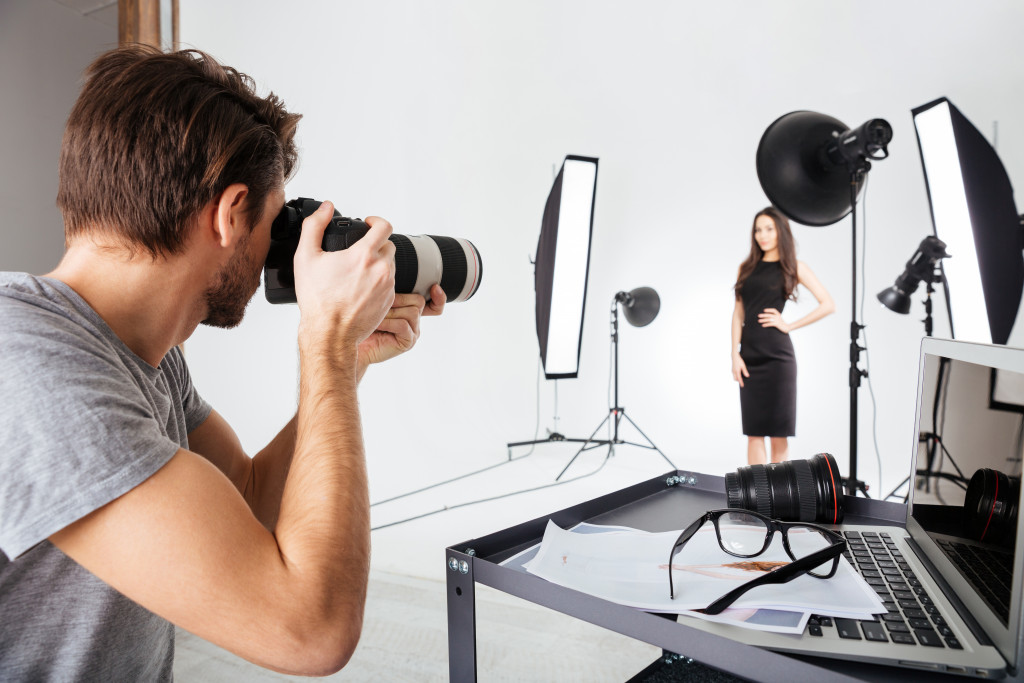When you try to become better as a photographer, where do you begin? Most people would instinctively look within the discipline itself. They read about guides on improving composition, directing models, or finding great light.
Or perhaps you’ll find the answer on the technical side. You shop for a more advanced camera and new lenses. You add to your photography kit by buying filters, tripods, light modifiers, and other pieces of gear. And you brush up on your knowledge of post-processing in Photoshop or similar software.
But sometimes you can also benefit from other fields of study. The connection might not be apparent, but if you allow yourself the freedom to explore different creative disciplines, it can feed back into your photography and unlock new improvements.
Learn a musical instrument
At first, there might not seem to be any clear connection between music and photography. Sure, it’s well-known that taking piano lessons will boost your creativity in general. But we’re basically talking about light and sound here. You can’t really listen to photos; at best, you might be able to evoke musical associations in certain viewers.
Still, the experience of learning how to play an instrument offers some transferable skills. When you play music from a sheet, you’re focusing on meeting a standard set by the composer. There is no improvisation, only a commitment to perfection. You don’t play it once and move on; you catch your mistakes, start over, and try to get it right with each iteration.
Most photographers could improve greatly by learning from this approach. Too often, we look at a scene, take a few shots, see how they turned out on the LCD (or much later, if you work with film), and move on.
Music teaches you to embrace the process. You’ll realize that by disengaging so quickly, you’re missing out on opportunities to learn, experiment, and grow creatively. Think about a scene as a piece of sheet music. There’s a composition there, waiting to be played in the right way. Are you really going to give up, or will you change things around until you find what works?

Appreciate and practice painting
Moving a little closer to home, you can study other art forms and gain visual inspiration from the use of diverse media and techniques. Painting, for instance, has considerable overlap with photography. A portrait photographer would do well to study the works of Rembrandt, Vermeer, and other classical masters.
Beyond the analysis and appreciation of other artworks, however, you can also learn by dabbling in those media. A painter doesn’t seek to capture reality with photographic detail. Instead, they can use their ability to more effectively create an impression on the viewer, drawing attention to certain aspects while eliminating distractions.
This is something many photographers leave to the post-processing stage. But it’s always best to nail an image in-camera as much as possible. When you go about shooting, think like a painter. Which parts of the scene should be in focus? Will blur due to motion or shallow depth of field contribute to the desired effect?
Painters often improve by studying photographs, but you can take advantage of this two-way relationship. Learn how to paint, and you refine your sense of composition, color harmony, and understanding of light.
Reading and writing
Music and painting can teach you to get better by engaging your senses. But you can also improve as a photographer by working on your imagination and storytelling. This is where reading and writing come into play.
When you read a good work of fiction, it allows you to empathize with characters. You step out of your headspace and try to understand the motivations of others. It helps you to grasp the invisible connections between a person and their setting.
That sense of character and meaning can enrich your photographs. After all, a picture can only paint a thousand words if you’re skilled enough to capture them correctly. And where reading sharpens your vision, writing helps you with its execution.
The simple practice of keeping a journal for personal reflection is an act of narrative creation. You’re telling your story to yourself. In doing so, you choose points of emphasis and how to frame them. That skill can be developed even further by writing fiction.
Ultimately, what you want to achieve is better storytelling through the medium of photography. And if you know more about the world and have a deeper understanding of people, you’ll notice things around you that others would ignore. You’ll know how to evoke specific feelings and associations through techniques such as juxtaposition.
A course in photography can try teaching you these things. But you’ll be better able to absorb them if you make those connections yourself through tangential learning in other disciplines.

